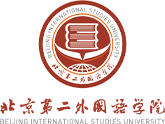
This year's International Symposium on Translation and Dialogue Among Civilizations commenced on Sept 27 at Beijing International Studies University (BISU). More than 200 representatives from government, academia, and industry gathered to discuss the pivotal role of translation in fostering civilizational exchange.
The conference, themed "Intelligent Translation, Boundless Civilization: Translation in the Digital Age for Civilizational Exchange", was organized under the guidance of the Translators Association of China (TAC) and co-hosted by BISU and the Beijing Translators Association, with support from China Digital Culture Group Co Ltd.
In his speech, Gao Anming, editor-in-chief of China International Communications Group and executive vice-president and secretary-general of TAC, underscored how artificial intelligence is revolutionizing translation and international communication. He emphasized the growing trend of human-machine collaboration in translation and the necessity of maintaining a human-centric approach to establish a symbiotic and mutually beneficial relationship between technology and humanity.

Gao Anming delivers a speech at the International Symposium on Translation and Dialogue Among Civilizations at Beijing International Studies University.
Bai Xuehua, Party secretary, executive director and general manager of China Digital Culture Group Co Ltd, highlighted the demand for linguistic and cultural expertise in areas such as Chinese culture corpus construction, digital cultural heritage and intangible cultural heritage. He expressed optimism for future collaboration with educational institutions to more effectively convey China's cultural narratives.

Bai Xuehua expresses hope for close cooperation with BISU.
Xu Jun, a senior professor at Zhejiang University and director of the Chinese Academy of Translation and Translation Studies at Zhejiang University, addressed three fundamental questions in translation during civilizational exchanges: What is translation? What role does translation play? How does it fulfill this role? He noted that as technology enhances translation capabilities, it is crucial determine what to translate, who should translate, why translation is necessary, and how it should be conducted. He emphasized the importance of the translation community's ongoing exploration of these questions to support the theoretical framework of translation and civilizational exchange.
Cheng Wei, vice-president of BISU, highlighted the university's initiatives in nurturing talent for cultural exchange and supporting national foreign strategies. She stressed the significance of exploring new paths and mechanisms for translation in the digital age to foster dialogue between civilizations.
The symposium also featured the signing of a cooperation agreement between China Digital Culture Group Co Ltd and BISU to collaboratively develop a multilingual corpus for Chinese intangible cultural heritage. Zhou Guangming, deputy general manager of China Digital Culture Group Co Ltd and Cheng Wei, vice-president of BISU, represented their respective institutions to signing the agreement.

Zhou Guangming and Cheng Wei(R) pose for a photo after signing the cooperation agreement.
Additionally, the "Beijing International Communication Language Environment Construction AI Application Guide (Trial)" was released.
Huang Youyi, executive vice-president of TAC, delivered a keynote speech on the necessity for high-end development in translation in the digital age. He stressed the importance of international communication awareness, understanding international audiences and utilizing AI to enhance translation quality.
Wang Xiaohui, editor-in-chief of China Internet Information Center and vice-president of TAC, discussed the cultural mission of using AI to convey China's traditional cultural stories. He stressed that effectively telling China's stories involves translating political discourse, narrating development stories, explaining Chinese culture and facilitating exchanges and mutual learning among civilizations. He also highlighted the need for translators to possess ten essential qualities, including political awareness and craftsmanship.
Misha Tadd, director of the Global Laozegetics Research Center at Nankai University, introduced the concept of "Global Laozi Studies", advocating for a global perspective in the translation and dissemination of Chinese classics.
Wu Jianshe, dean of the School of Artificial Intelligence and Language Sciences at BISU, presented on the latest developments in intelligent simultaneous interpretation quality assessment, detailing the school's initiatives in integrating AI with foreign language studies.
In the afternoon, sub-forums were held on topics including "Classical Translation and Civilizational Dialogue", "Intelligent Translation in Cultural Tourism and Global Co-Creation", and "AI and Translation".

Links
